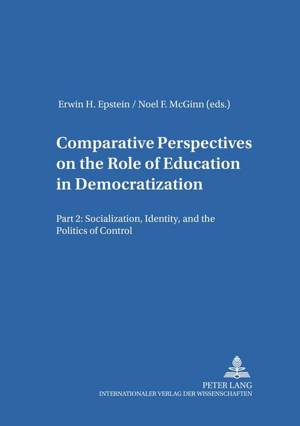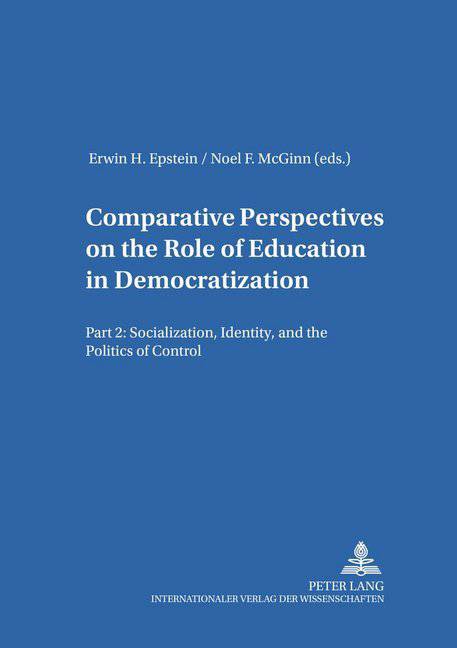
- Afhalen na 1 uur in een winkel met voorraad
- Gratis thuislevering in België vanaf € 30
- Ruim aanbod met 7 miljoen producten
- Afhalen na 1 uur in een winkel met voorraad
- Gratis thuislevering in België vanaf € 30
- Ruim aanbod met 7 miljoen producten
Zoeken
Comparative Perspectives on the Role of Education in Democratization
Part 2: Socialization, Identity, and the Politics of Control
€ 84,45
+ 168 punten
Omschrijving
All modern nations rely on a fundamental human need of belonging to capture citizens' allegiance, and they do so largely through the agency of schools. States pursue this goal in ways congenial to the political culture: authoritarian nations will normally have authoritarian schools, and democratic ones will have democratic schools. Yet governments vary in their willingness and ability to enjoin schools in pursuit of their goals. And, they vary in their ability to define clearly the school's function, in furnishing school people with a secure road map in pursuing democracy. Even when objectives are expressed clearly, conditions are not always conducive to carrying them out, and the very condition of social change - when overarching goals are being reset and are therefore plausibly obscure to everyday citizens - may hinder schools in their role as instrument of democratization. This book, the second of a two-volume set, addresses issues of democratization by viewing the place of education in government designs for dealing with change, especially in terms of the character of the society being governed: its quest for a national identity, its ethnic composition, its religion(s), and its empowerment of women.
Specificaties
Betrokkenen
- Uitgeverij:
Inhoud
- Aantal bladzijden:
- 416
- Taal:
- Engels
- Reeks:
- Reeksnummer:
- nr. 8
Eigenschappen
- Productcode (EAN):
- 9783631315019
- Verschijningsdatum:
- 14/04/2000
- Uitvoering:
- Paperback
- Formaat:
- Trade paperback (VS)
- Afmetingen:
- 148 mm x 210 mm
- Gewicht:
- 539 g

Alleen bij Standaard Boekhandel
+ 168 punten op je klantenkaart van Standaard Boekhandel
Beoordelingen
We publiceren alleen reviews die voldoen aan de voorwaarden voor reviews. Bekijk onze voorwaarden voor reviews.










